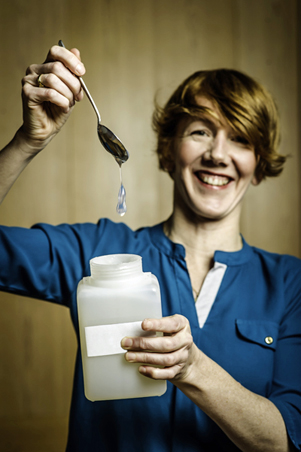New Major Nanocellulose Project Starting in Northern Sweden
![]() Print this Article | Send to Colleague
Print this Article | Send to Colleague
 With the aim to establish production of crystalline nanocellulose (CNC), a project will be started for development of the test bed TinyBTalented and new applications on a large scale. With a budget of SEK 8 million, the project also aims to establish working methods for future application development. SP Processum will be acting as project leader for this project, several participants, including Holmen, Melodea, Mid Sweden University, MoRe Research, Organofuel, RISE Chemistry, Materials and Surfaces, as well as S2Medical, SEKAB E-Technology, and Tetra Pak
With the aim to establish production of crystalline nanocellulose (CNC), a project will be started for development of the test bed TinyBTalented and new applications on a large scale. With a budget of SEK 8 million, the project also aims to establish working methods for future application development. SP Processum will be acting as project leader for this project, several participants, including Holmen, Melodea, Mid Sweden University, MoRe Research, Organofuel, RISE Chemistry, Materials and Surfaces, as well as S2Medical, SEKAB E-Technology, and Tetra Pak.
This is an almost four-year project ending in November 2020. Vinnova, Sweden’s innovation agency, is contributing SEK 3.6 million to TinyBTalented and the participants are contributing SEK 4.4 million. The participants will either together or separately be working within four application areas: CNC in flat shaped materials, in wound dressings, as strength additives in multi-layer materials, and for functionalization of gas and fluid barriers. The project also has a stakeholder council consisting of yet more companies and universities.
Currently, a pilot plant for production of CNC is being built in Írnsköldsvik in northern Sweden. The pilot is a very important part of the project. It will be the first of its kind in Europe and is an important step to make it possible for interested parties to develop CNC from cellulose based material on a large scale. CNC has many interesting material characteristics and can be used, for example, as construction material, biocomposites, printed electronics, and paint additives.
"It is really exciting that we and our project partners at this site have been given the trust to act as the platform for development of a new generation of biobased materials," said Emma Johansson, R&D engineer at Processum and project leader for TinyBTalented. "We have an integrated infrastructure for biorefinery development with the capability and competence to demonstrate whole or parts of process lines from raw material to finished product on a pilot as well as demonstration scale. It is an excellent basis for development of crystalline nanocellulose. The TinyBTalented structure also makes it possible to establish working methods for sustainable future application development."
In photo above, Emma Johansson, project leader TinyBTalented, said that "it will be really exciting to develop a test bed based on CNC together with our partners, yet again highlighting the potential of the biomass we have all around us—the forest."
Anna Svedberg, responsible for development and marketing at MoRe Research, explained that "since it was decided to build a pilot for crystalline nanocellulose here in Írnsköldsvik, we have started several projects for development of crystalline nanocellulose applications. We cooperate with, e.g., KTH, the Wallenberg Wood Science Centre, and Mid Sweden University. This means that TinyBTalented suits our development of nanocellulose and we see the project as an important and necessary step in the development of this material for the future to its fullest potential."
Moa Eklund, Vinnova, added that "the establishment of the test bed TinyBTalented for nanocrystalline cellulose enables upscaling of techniques, accelerates development of applications, and is considered having a good potential to replace a number of fossil products with new materials based on CNC. The plant being built is also a complement to already established infrastructure within the biorefinery area in Írnsköldsvik, making it possible to create synergies, and the test bed reinforces the partners’ test and demo offers. The plant is also considered as having a potential to attract several international customers. Vinnova also considers it positive that the test bed is part of a major investment in CNC in Írnsköldsvik, with a lot of competence built up in several investments."
For more information about the test bed TinyBTalented, contact Emma Johansson, +46 10 516 67 55.
SP Processum started in 2003 and has developed from a technology park in Írnsköldsvik, Sweden, to a leading biorefinery initiative, both nationally and internationally. Most its activities involve support and initiatives regarding research and development in the areas of biotechnology, energy technology, inorganic chemistry, organic chemistry, and raw materials with a focus on sustainability. Together with other biorefinery initiatives along the coast of the northern part of Sweden, and together with the universities, SP Processum forms an important hub for development of new products, energy solutions, and fuels based on wood raw material. SP Processum hosts the growth initiative, The Biorefinery of the Future. It is 60% owned by RISE Research Institutes of Sweden and 40% by the 20 member companies forming the Processum Interest Group. More information is available online.


